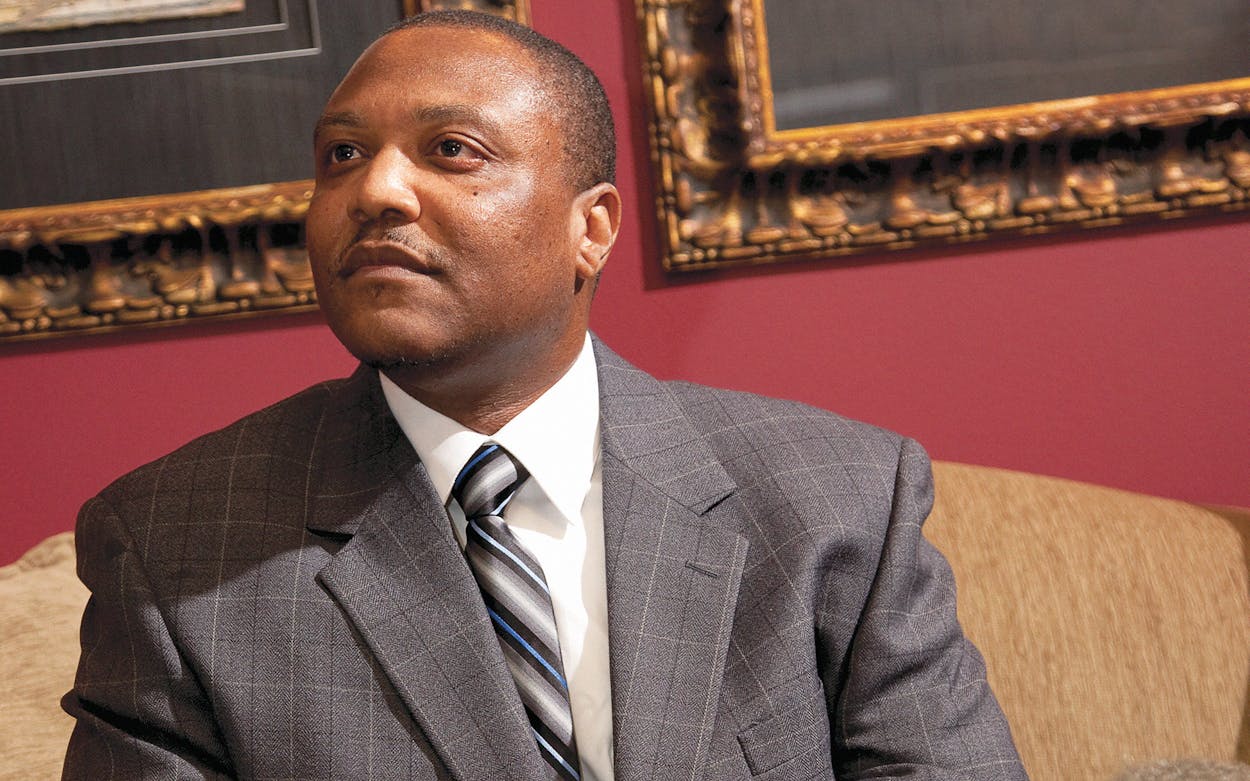Throughout the nineties, Pamela Colloff had been reporting on criminal justice issues—police misconduct, fair sentencing, and cold cases—and as the new millennium got underway, increased DNA testing for old convictions exposed several cases that had put prisoners behind bars for crimes they hadn’t committed. “This phenomenon of wrongful convictions was suddenly becoming very visible to the public,” Colloff said. “So that became something I wanted to write about.”
As she began researching cases, one name kept coming up: Anthony Graves. Colloff learned that the Fifth Circuit Court of Appeals had overturned Graves’s capital murder conviction in 2006, yet for another four years he’d remained in jail while the Burleson County district attorney’s office prepared to retry the case. Colloff’s interest was piqued. What trial was so shoddy that the Fifth Circuit would take the rare step of overturning the result?
When Colloff first met Graves, he had been in solitary confinement for the previous four years, and he spoke for two hours straight. Some of his claims might have sounded hard to believe, but, Colloff said, “Everything that Anthony told me in that interview—it all turned out to be true.”
Colloff’s two-part series about Graves, “Innocence Lost,” in October 2010, and “Innocence Found,” in January 2011, told a complex legal tale of sloppy police work. “There was no physical evidence that tied Graves to the crime and no discernible motive,” Colloff wrote, “only the word of the crime’s prime suspect.” The story was nominated for a National Magazine Award, and weeks after Texas Monthly published “Innocence Lost,” the special prosecutor assigned to Graves’s case dropped all charges against him and had him released from detention. The Texas Legislature later awarded him $1.45 million for his wrongful conviction, and he used a portion of the funds to endow a University of Texas law scholarship in the name of his attorney, Nicole Cásarez. Finally, the State Bar of Texas disbarred Graves’s original prosecutor for withholding evidence and using false testimony.
“The special prosecutor did the right thing,” said Colloff, who now writes for ProPublica and the New York Times Magazine. “And that doesn’t mean that Anthony didn’t go through hell for eighteen years and that the victims’ families didn’t go through hell being lied to. But there was this one point, and from that point afterwards, Anthony got justice. And that that could be spurred by a story was really rewarding.”









